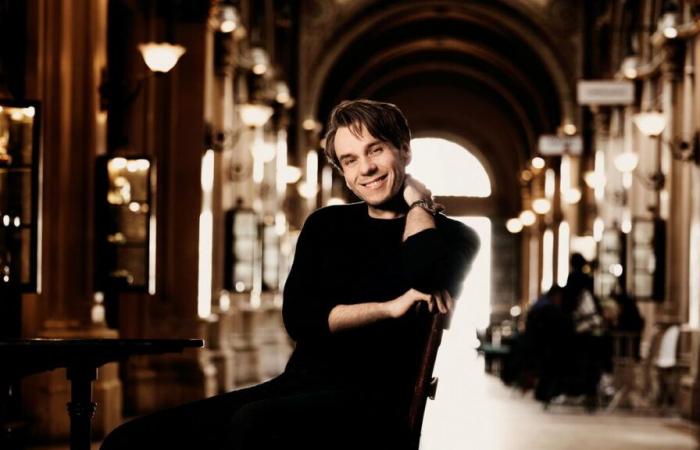
Few tenors have broken the sound barrier of the general public. After Roberto Alagna, of whom he is one of the heirs, it is Benjamin Bernheim who comes to seduce us far beyond the sphere of specialists. The lyrical singer who is performing this Sunday, November 24 at the Opéra Garnier in Paris (full concert, broadcast on France Musique on December 28 at 8 p.m.), flew onto an elevated Olympic ring in the Stade de France, with a pianist in the air on August 11 during the closing ceremony of the Olympic Games.
He performed a melody by Fauré with lyrics paying homage to ancient Olympism. His current tour is devoted to an album of absolutely delicious songs (at Deutsche Grammophon): Berlioz, Chausson, but also “Douce France” – his cover of Trenet which gives its title to the disc –, the “Feuilles Mortes” by the duo Kosma- Prévert, and a poignant and memorable interpretation of “Quand on a que l’amour” by Brel. It seems like this classic was written for him. He undoubtedly puts a lot of his personal cracks into it. A letting go of his silvery voice which touches on an incredible virtuosity in the high notes.
A regular on the biggest opera stages
The man of the Paris 2024 closing ceremony is a regular on the biggest opera stages. Benjamin Bernheim, 39, continued this summer with Offenbach’s “Tales of Hoffmann”, at the Salzburg festival (Austria), “the Olympic Games of opera and lyrical music”, as he told us smiling.
Lyric Artist of the Year at the Victoires de la Musique Classique 2020 and 2024, the Franco-Swiss has been searching for a long time. Son of a couple of singers who did not achieve his notoriety, he hesitates before the dizziness of the profession, its fragility. The past decade has revealed him to himself in major roles, from Werther to Romeo.
In “Douce France”, he sings mainly poems by Théophile Gauthier and Charles Baudelaire, as well as these three monuments of popular French song. His voice-piano duet with Carrie-Ann Matheson, his musical alter ego for ten years, brings a lot of intimacy to the setting of this incredibly clear voice, without effects. Bernheim never wants to play the crooner or the virtuoso – he is enough of that without adding to it – but seeks the pulp of the word, of feeling, vulnerability and sometimes pain. A miraculous and consoling voice to get through autumn and into winter.





